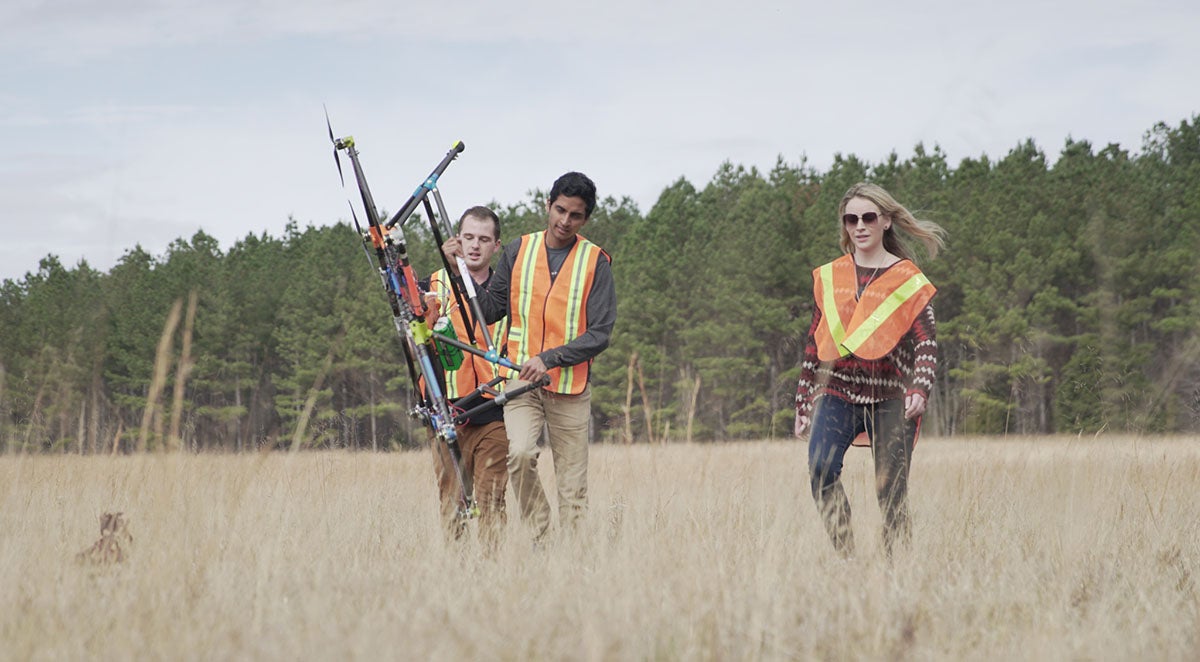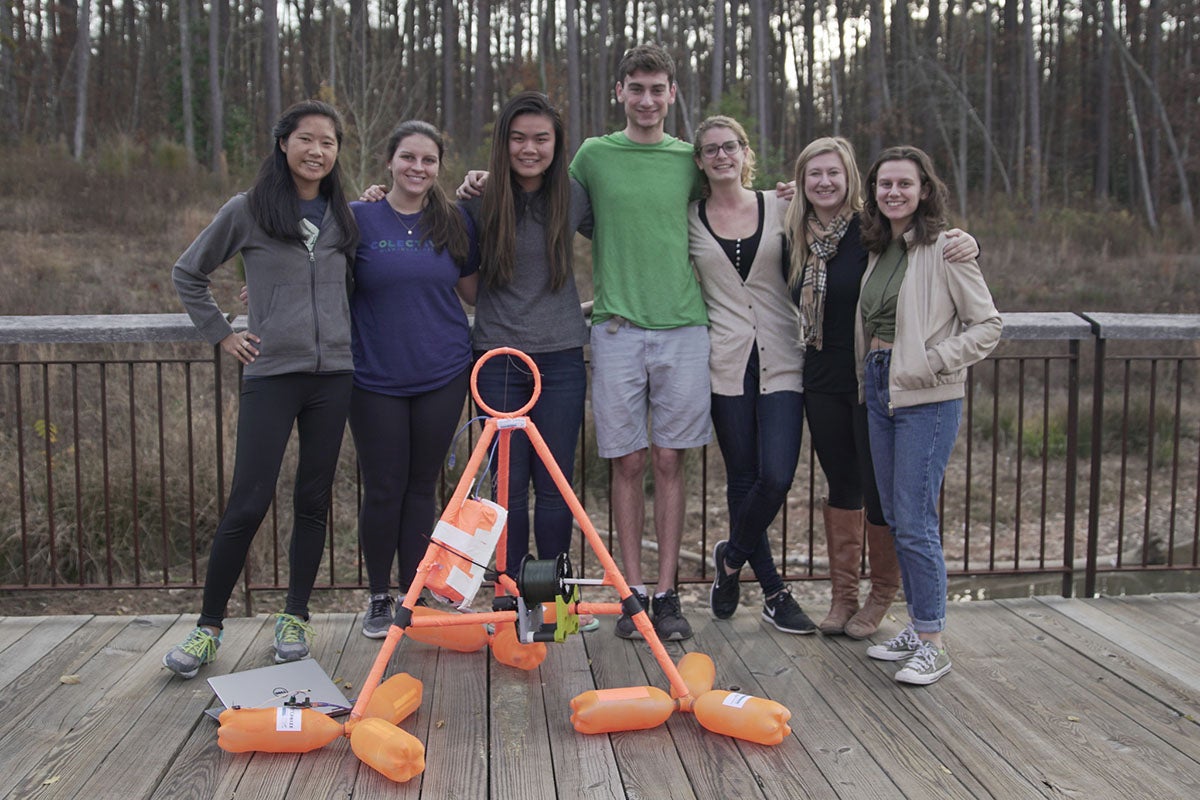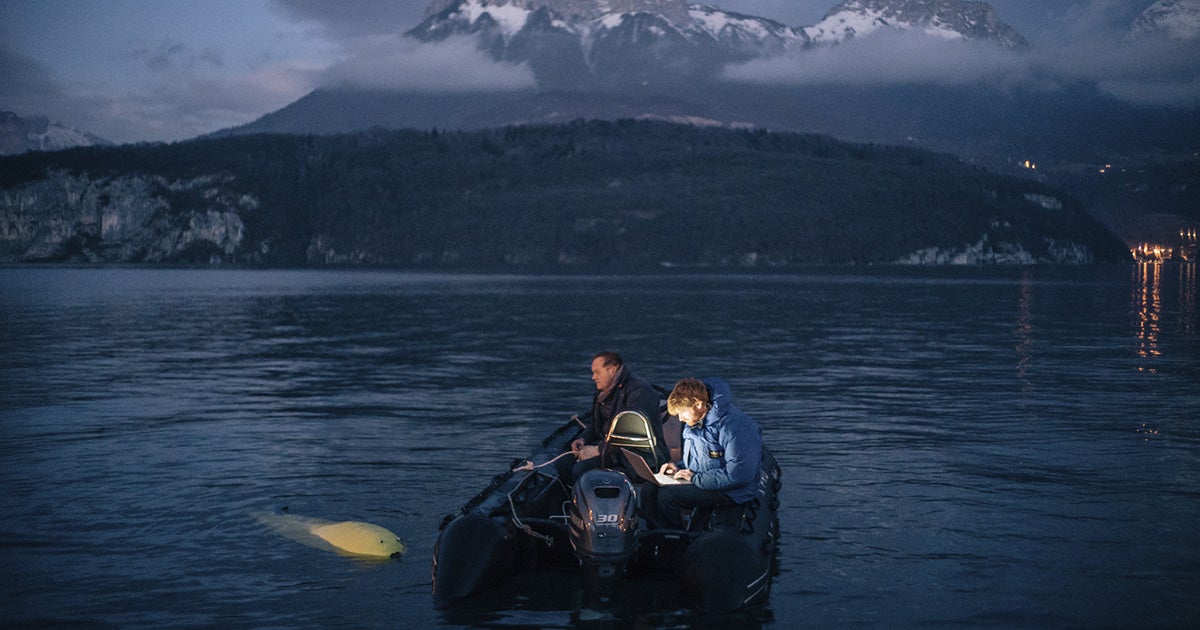The Shell Ocean Discovery XPRIZE is a global competition with a goal to advance the development of marine robotic technologies to access and illuminate the deep-sea like never before. In March 2018 we announced the 9 Grand Prize Final Teams who made it past the rigorous Round 1 Technology Readiness Test and assessment by our independent Judging Panel. For the second and final round of testing in November and December of this year, these teams, representing 9 countries with team members from over 28 countries, will be tasked to autonomously map and image the seafloor at 4000 meters beneath the sea surface.
What these teams have accomplished, and are preparing for in their upcoming mission, has been no easy feat. Over the next few months, we are excited to introduce you to these teams and, through their own words, their trials and triumphs, and their audacious and challenging XPRIZE journey. We hope you enjoy this series of blogs and decide who you will be cheering for to win the first place Grand Prize of $4 Million in the second and final round of the competition!
We begin this month’s blog by featuring two teams: Team CFIS, representing Switzerland and the United Kingdom, and Team Blue Devil Ocean Engineering, a student team from Duke University, North Carolina, United States. Stay tuned to meet the rest of these innovative teams and hear their stories over the next several months! Be sure to follow XPRIZE on Facebook and Twitter for updates on when new posts become available.
Team CFIS
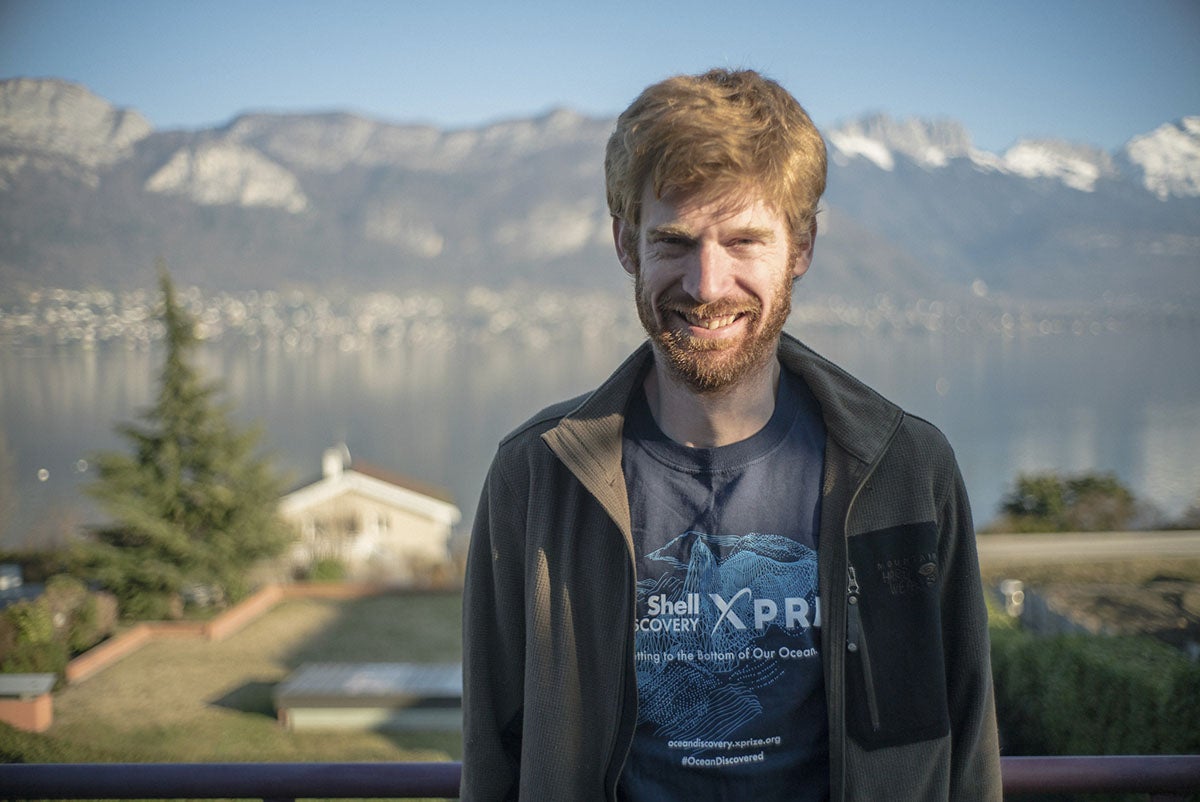
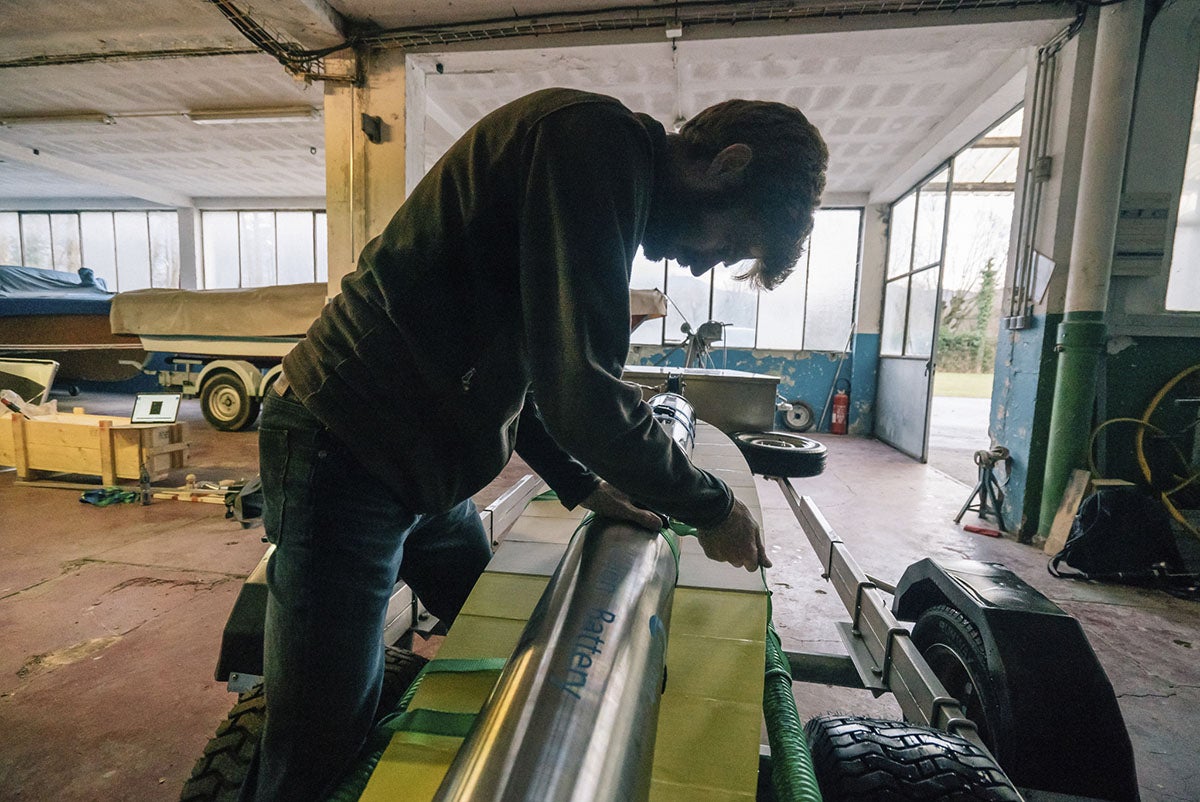
Team CFIS is a one-man team from the U.K. and a great example of how much an individual can accomplish through sheer passion and determination. Although Toby Jackson (Team Lead) has a university degree in physics, the bulk of his professional career has been in the finance sector and he has no prior background in marine technology or robotics. Toby entered the Shell Ocean Discovery XPRIZE competition through a recommendation from a friend. He decided to build autonomous underwater-mapping robots because he thought it would be a fun and worthwhile challenge, and because he believed he could do it. Team CFIS is using a different approach to map the sea floor – the most common way of sea floor mapping in the world is to use sound Sonar), but Toby is trying a new technique using light (Lidar). Toby currently resides in an idyllic town near Geneva, Switzerland with his wife and two young children. Learn more about Team CFIS here and follow the adventures of Team CFIS’s AUV, “Aldus” on Twitter @AldusTheAUV.
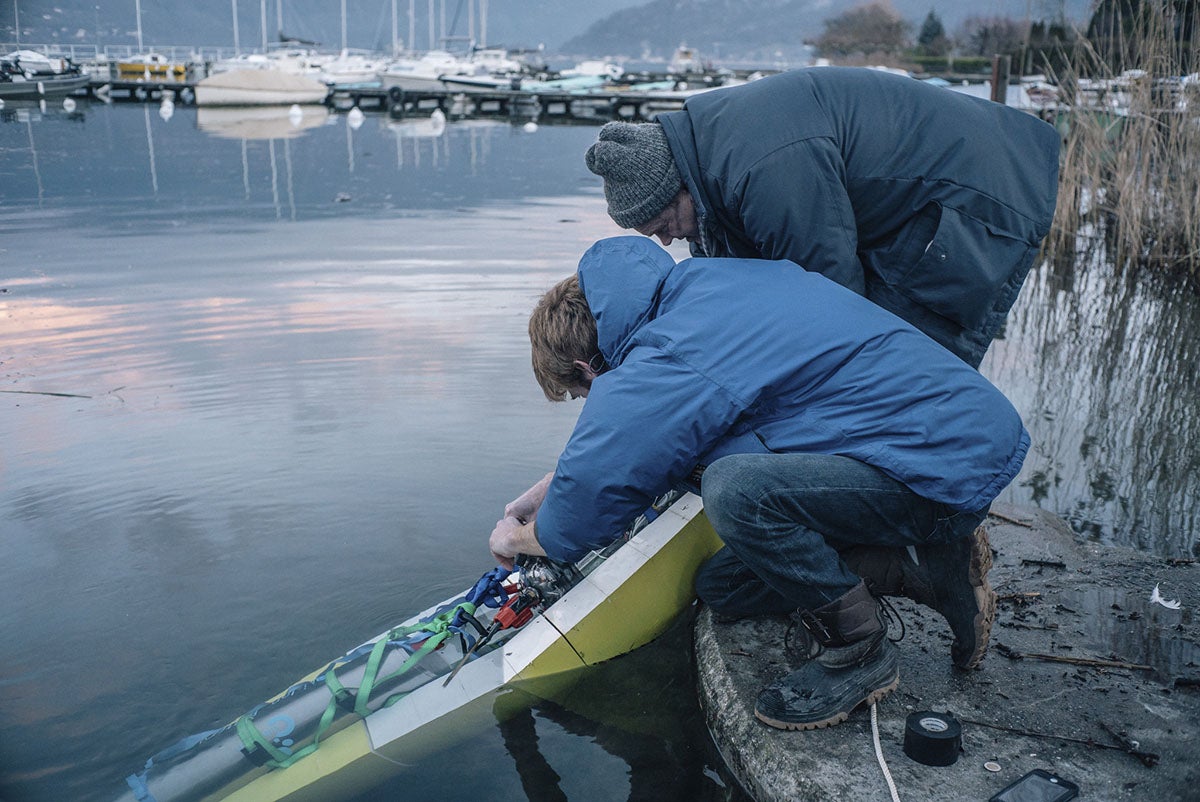
- What is your favorite oceans-related movie?
I can remember wearing out my VHS copy of The Big Blue (1988). However, I can’t decide if I’ve watched it more or less times than Finding Nemo (2003)! - What first sparked your interest in the oceans?
Learning to dive in the Red Sea 20yrs ago. I was so naïve that, before our first dive, I asked the Dive Instructor whether or not we’d see any fish!
- What do you appreciate about the XPRIZE approach in solving grand challenges?
Competitions are a wonderful way to stimulate investment, research and public interest. Winning the competition would be the icing on top of the cake but all Finalists get a platform to demonstrate their cutting-edge technologies to an interested global audience.
- What do you think we will find at the bottom of the ocean?
If I knew that, I wouldn’t want to go!
- Describe an “ah-ha” or breakthrough moment during the competition.
You’ll have to wait until the end of the Competition to discover this!
- What has been your biggest personal or group achievement in getting to the finals?
It was a real challenge getting everything ready for Round One. Almost all my pre-Judge visit testing had to be cancelled because of bad weather and the vehicle being impounded by the Swiss Border Police over Christmas! There was a lot of last-minute duct tape involved.
- Tell us a funny story that happened during the Competition to you or your team.
Qualifying for the Final in of itself is pretty funny!
- 2018 is the year of the World Cup and the year of the Finals for this Competition, why should people root for your team?
Considering the intimidatingly impressive credentials of the other 8 teams, it seems only right to root for the solo Englishman tinkering away in his shed…
- Who is your favorite explorer and why?
I have incredible respect for ancient seafaring civilizations that had the confidence to set sail on journeys out of sight of land, especially Norsemen and Polynesians.
- In your opinion, what is the biggest technological breakthrough in the last 100 years?
Technologies are so interconnected this question doesn’t really have an answer. I think most people would agree that the Internet has been the most transformative breakthrough in the last century, but it couldn’t have existed without semiconductor technologies, computer science, mass production of cheap consumer electronics or a plethora of other technologies.
- In your opinion, what do you hope might be the biggest technological breakthrough in the next 100 years?
Not being able to explore space on human timescales is incredibly frustrating so I’d ask for either increased lifespan or faster spaceships thank you.
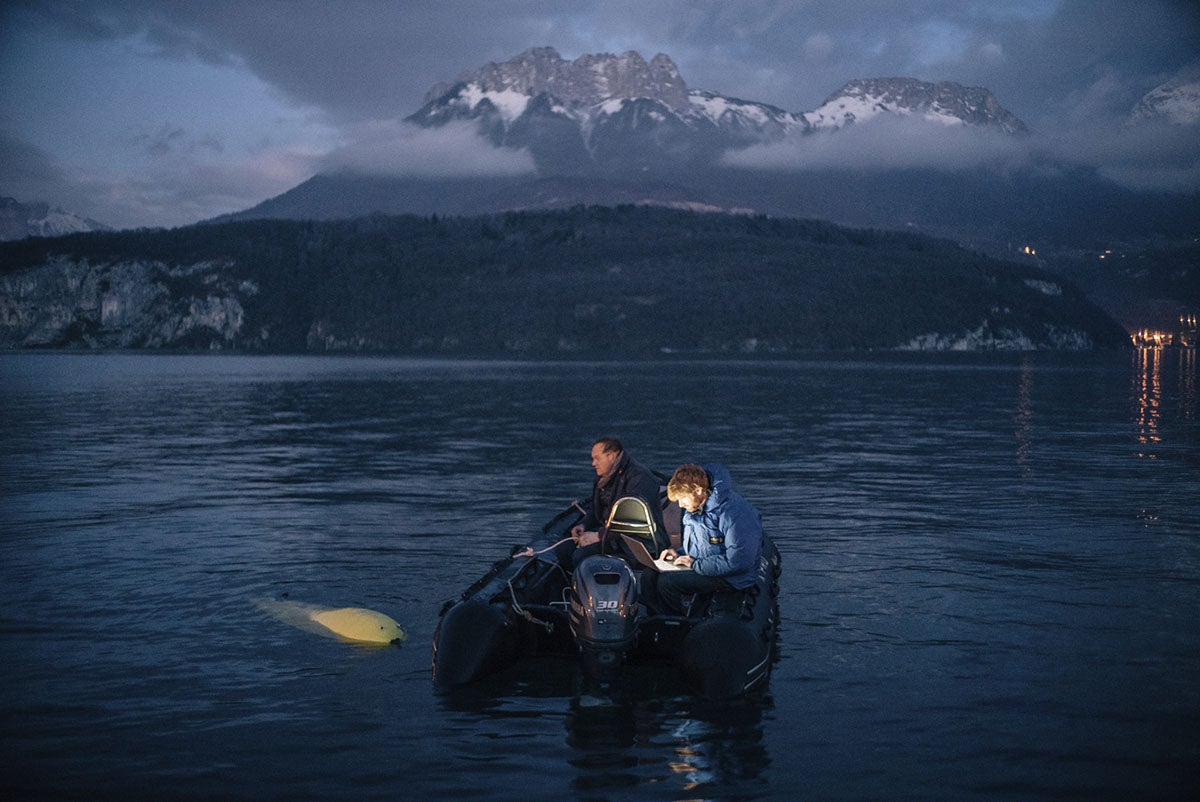
Team Blue Devil Ocean Engineering
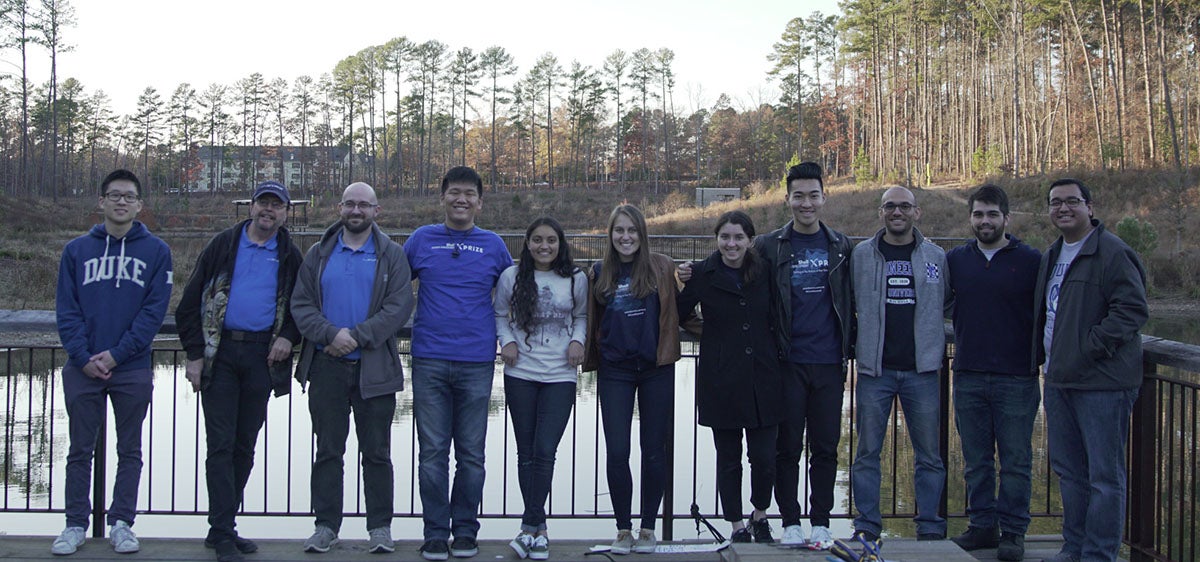
Team Blue Devil Ocean Engineering is comprised of students and faculty from Duke University’s Pratt School of Engineering and The Nicholas School of the Environment. A wide and rotating cohort of approximately 50 students per semester (based around classes) in Ocean Engineering and Robotics and student-interest clubs fueled this XPRIZE team to the finals, with Professor Martin Brooke (Associate Professor of Electrical and Computer Engineering) steering the students’ efforts as Team Lead, along with faculty members Professor Tyler Bletsch and Professor Douglas Nowacek. Professor Brooke enjoys working on this project to not only bring real-world engineering problems into the classroom, but also to integrate real solutions from his college students into the entry. Team Blue Devil Ocean Engineering is the only team in the competition to propose an aerial component to their technology, using drones to drop and retrieve their ocean-diving SONAR pods. This is Team Blue Devil Ocean Engineering’s second XPRIZE – they were semi-finalists in the Wendy Schmidt Ocean Health XPRIZE. Read more about Team Blue Devil Ocean Engineering here.
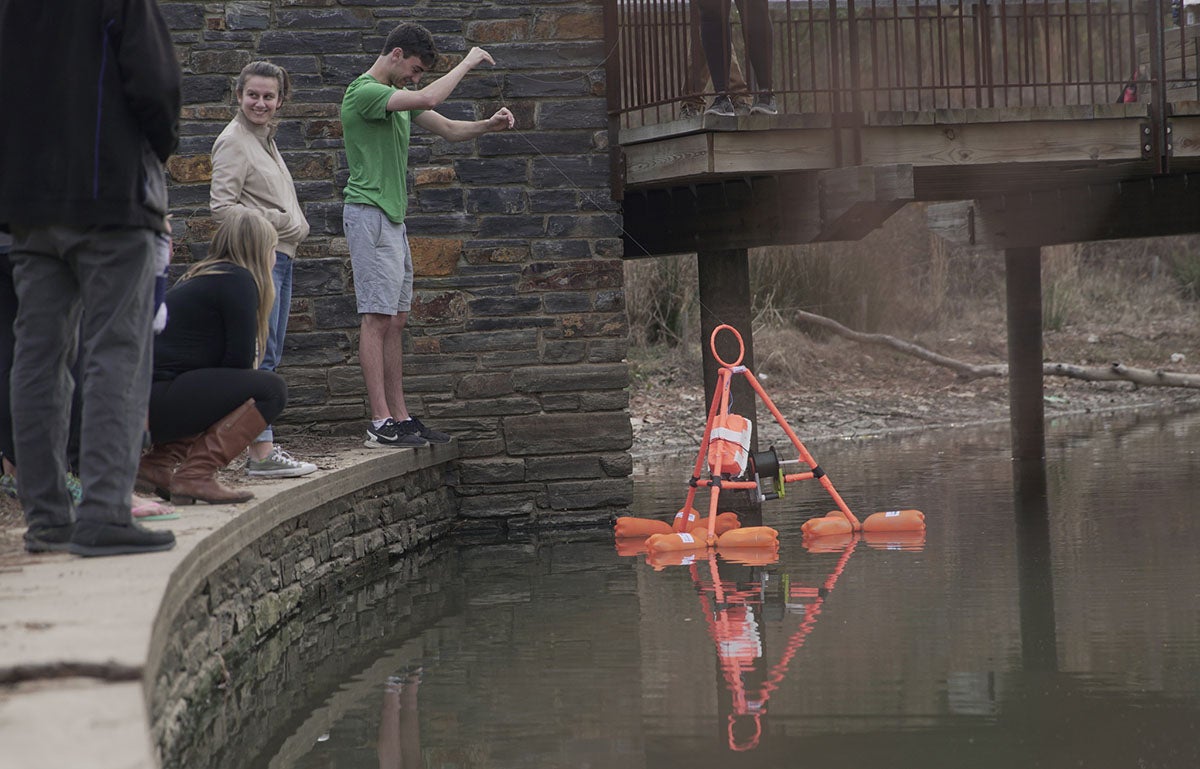
- What is your favorite oceans-related movie?
20,000 Leagues Under the Sea (1954), directed by Richard Fleischer.
- What first sparked your interest in the oceans?
Going to the beach in New Zealand as a child.
- What do you appreciate about the XPRIZE approach in solving grand challenges?
The XPRIZE provides a great way to motivate participation in grand challenges. The publicity, the community, and the feeling of being a part of something larger all really help to motivate participants, so of course does the prize!
- What do you think we will find at the bottom of the ocean?
I hope we find that the ocean is much more complex than we ever imagined. If history is any guide when we explore new places, we find things we never thought could exist.
- Describe an “ah-ha” or breakthrough moment during the competition.
When we got AI code from a volunteer that would allow us to track and recover our SONAR pods with our drone. The volunteer just out of the blue offered to help and has been great.
- What has been your biggest personal or group achievement in getting to the finals?
Personally I am really pleased to have had over 200 students and volunteers participate in the XPRIZE. Using classes and volunteers to compete in an XPRIZE is a huge challenge, and possibly the worst possible way to run a team, but so many lives get touched with the excitement, it is worth it.
- Tell us a funny story that happened during the Competition to you or your team.
During the XPRIZE visit to Duke, we had a number of tests to pass the criterion for completion of Round 1; one was that our large heavy lift drone had to exceed 25 miles per hour. The test went off OK with the drone reaching 36 mph. However, we had another drone up to film the test flight that unfortunately interfered with our radio control link, so the competition drone kept on flying into the woods of Duke Forest after the test. It came to rest after a lot of crashing and banging, and surprisingly, was still in one piece!
- 2018 is the year of the World Cup and the year of the Finals for this Competition, why should people root for your team?
We are certainly underdogs; we are very pleased, but quite surprised to have made it to the finals. If we were to actually win, we would definitely be the lowest cost entry! The prize money from Round 1 nearly doubled our budget!
- Who is your favorite explorer and why?
The Polynesian explorers who discovered New Zealand. This was an amazing feat of navigation for a stone age culture.
- In your opinion, what is the biggest technological breakthrough in the last 100 years?
The pathway that lead to modern microcontrollers. There are so many people and inventions in that chain it is hard to declare any one breakthrough the biggest. Without small computers much of our modern world would not work.
- In your opinion, what do you hope might be the biggest technological breakthrough in the next 100 years?
Figure out how the human mind works well enough to solve problems like what is consciousness and how does creativity work. Not sure 100 years is enough time though. Actually, I hope it isn’t as that will be a scary time.
